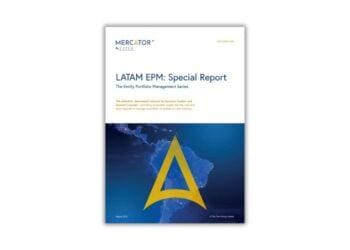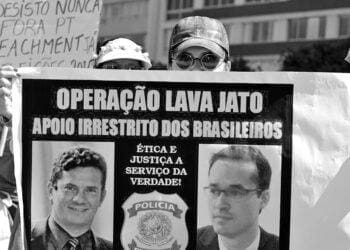One of the most innovative features of Brazil’s new Anti-Bribery Law is Chapter 5, which establishes the possibility of leniency agreements for companies. This is a new concept in Brazil’s anti-corruption arena. Under the plain language of the law, by entering into such agreements and satisfying their conditions, companies can reduce the applicable fines by up to two-thirds and be exempted from judicial and administrative sanctions.
To qualify for leniency, the collaboration between Brazilian enforcement and the companies must result in the identification of those involved in the violation where applicable (Article 16(I)) and must produce information that proves the wrongful acts at issue in the investigation (Article 16(II)). The company must be the first to express to enforcement officials an interest in cooperating, cease its involvement in the investigated wrongdoing, admit its participation in the wrongdoing and fully cooperate with the investigation. Enforcement authorities establish conditions to settlements. Companies must still provide full restitution for damage caused (Article 16, paras 1-4).
Now that the law will soon come into force on January 29, 2014, companies operating in Brazil are beginning to ask questions about the leniency process. Here are three main challenges they see:
Multiple authorities. The law provides several authorities in Brazil with jurisdiction to enforce its provisions. It also gives the “highest authority of each public body or entity” the ability to enter into leniency agreements. This raises various questions related to bribery violations that touch multiple jurisdictions. Will companies have to enter into different leniency agreements for each jurisdiction? If a company settles with the Office of the Federal Comptroller General (CGU), will other jurisdictions honor the settlement? How will companies effectively manage the risk that one authority might choose to settle while another will not?
Lack of immunity for other violations. While a leniency agreement might settle bribery charges, it might not reach other types of violations that could be implicated and that do not include settlement mechanisms. Individuals at the company could still be liable. There could be civil suits. This creates a disincentive for companies to want to participate. Luiz Navarro, a lawyer at Veirano Advogados who previously worked for CGU and helped develop the anti-bribery legislation, warns: “A company’s decision to settle an agreement will have to take into consideration not only the lack of immunity for other violations, but also the fact that it has to admit participation in the wrongdoing, providing gunpowder for prosecutors to press criminal charges against individuals.”
The effect of global investigations. The choice of whether or not to seek a settlement in Brazil could influence or be influenced by similar considerations in other countries. Today, anti-corruption authorities are cooperating with much vigor. Recently, FCPA officials described this high level of cooperation. Reports indicate that Brazilian authorities have issued a mutual legal assistance request to U.S. authorities in the Embraer investigation. Given such cooperation, will companies be forced into negotiating settlements in Brazil even when they do not wish to do so? By not pursuing leniency agreements, do they run the risk that Brazilian authorities will find evidence elsewhere? If a company settles with an authority in one country, will it complicate the ability to negotiate favorable terms with another?
The opinions expressed in this post are those of the author in his or her individual capacity and do not necessarily represent the views of anyone else, including the entities with which the author is affiliated, the author`s employers, other contributors, FCPAméricas or its advertisers. The information in the FCPAméricas blog is intended for public discussion and educational purposes only. It is not intended to provide legal advice to its readers and does not create an attorney-client relationship. It does not seek to describe or convey the quality of legal services. FCPAméricas encourages readers to seek qualified legal counsel regarding anti-corruption laws or any other legal issue. FCPAméricas gives permission to link, post, distribute or reference this article for any lawful purpose, provided attribution is made to the author and to FCPAméricas LLC.



 Matteson Ellis serves as Special Counsel to the FCPA and International Anti-Corruption practice group of Miller & Chevalier in Washington, DC. He is also founder and principal of Matteson Ellis Law PLLC, a law firm focusing on FCPA compliance and enforcement. He has extensive experience in a broad range of international anti-corruption areas. Previously, he worked with the anti-corruption and anti-fraud investigations and sanctions proceedings unit at The World Bank.
Mr. Ellis has helped build compliance programs associated with some of the largest FCPA settlements to date; performed internal investigations in more than 20 countries throughout the Americas, Asia, Europe and Africa considered “high corruption risk” by international monitoring organizations; investigated fraud and corruption and supported administrative sanctions and debarment proceedings for The World Bank and The Inter-American Development Bank; and is fluent in Spanish and Portuguese.
Mr. Ellis focuses particularly on the Americas, having spent several years in the region working for a Fortune 50 multinational corporation and a government ethics watchdog group. He regularly speaks on corruption matters throughout the region and is editor of the FCPAméricas Blog.
He has worked with every facet of FCPA enforcement and compliance, including legal analysis, internal investigations, third party due diligence, transactional due diligence, anti-corruption policy drafting, compliance training, compliance audits, corruption risk assessments, voluntary disclosures to the U.S. government and resolutions with the U.S. government. He has conducted anti-corruption enforcement and compliance work in the following sectors: agriculture, construction, defense, energy/oil and gas, engineering, financial services, medical devices, mining, pharmaceuticals, gaming, roads/infrastructure and technology.
Mr. Ellis received his law degree, cum laude, from Georgetown University Law Center, his masters in foreign affairs from Georgetown’s School of Foreign Service, and his B.A. from Dartmouth College. He co-founded and serves as chairman of the board of
Matteson Ellis serves as Special Counsel to the FCPA and International Anti-Corruption practice group of Miller & Chevalier in Washington, DC. He is also founder and principal of Matteson Ellis Law PLLC, a law firm focusing on FCPA compliance and enforcement. He has extensive experience in a broad range of international anti-corruption areas. Previously, he worked with the anti-corruption and anti-fraud investigations and sanctions proceedings unit at The World Bank.
Mr. Ellis has helped build compliance programs associated with some of the largest FCPA settlements to date; performed internal investigations in more than 20 countries throughout the Americas, Asia, Europe and Africa considered “high corruption risk” by international monitoring organizations; investigated fraud and corruption and supported administrative sanctions and debarment proceedings for The World Bank and The Inter-American Development Bank; and is fluent in Spanish and Portuguese.
Mr. Ellis focuses particularly on the Americas, having spent several years in the region working for a Fortune 50 multinational corporation and a government ethics watchdog group. He regularly speaks on corruption matters throughout the region and is editor of the FCPAméricas Blog.
He has worked with every facet of FCPA enforcement and compliance, including legal analysis, internal investigations, third party due diligence, transactional due diligence, anti-corruption policy drafting, compliance training, compliance audits, corruption risk assessments, voluntary disclosures to the U.S. government and resolutions with the U.S. government. He has conducted anti-corruption enforcement and compliance work in the following sectors: agriculture, construction, defense, energy/oil and gas, engineering, financial services, medical devices, mining, pharmaceuticals, gaming, roads/infrastructure and technology.
Mr. Ellis received his law degree, cum laude, from Georgetown University Law Center, his masters in foreign affairs from Georgetown’s School of Foreign Service, and his B.A. from Dartmouth College. He co-founded and serves as chairman of the board of 






